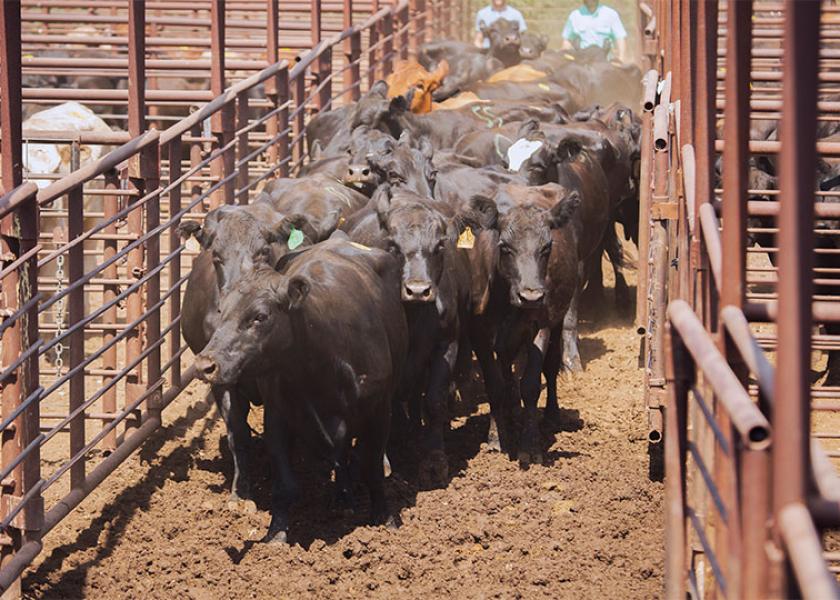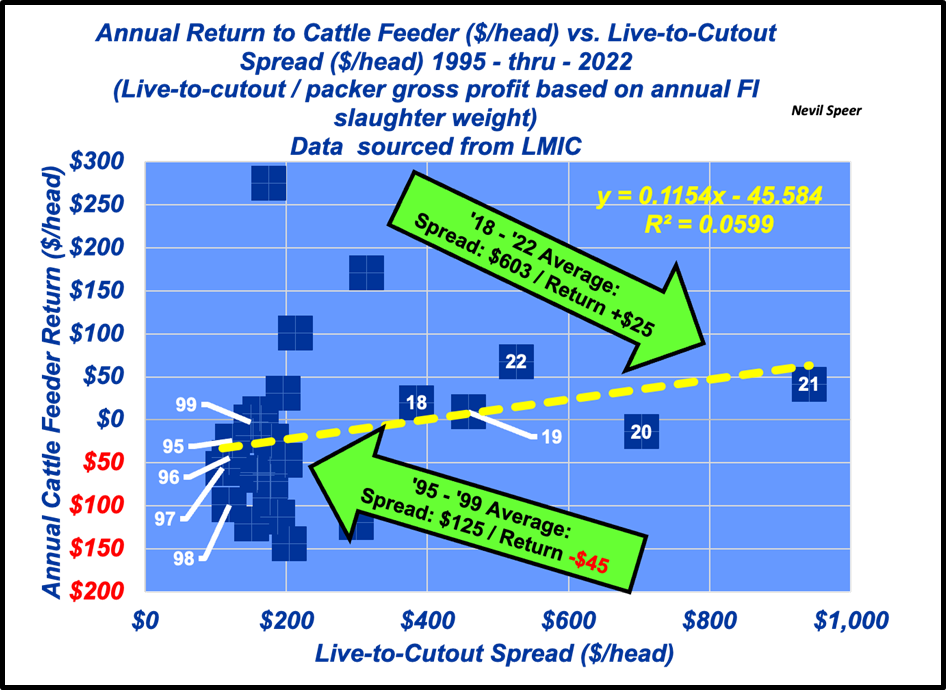Speer: Think vs. Know

Email: Following my previous column, I received a thoughtful, well-written email challenging some of the column’s assertions. I read it especially carefully because it’s from someone whom I respect very much; he’s highly accomplished in both industry and academia. But even more importantly, I regard him as a careful thinker.
The email addressed several important themes regarding markets, emotion, and the general state of the business. Given my regard for him, I gave the email careful consideration (and responded accordingly). With that, let’s tackle some of the topics beginning with this column (it’s doubtful one will be enough).
Record Prices: The email explains, “Perhaps the system is not ‘broken’, but it could and should be better. It is too easy for you to say that it is not broken when cattle prices are breaking records for producers…”
I responded noting I’ve written any number of columns (well before record prices) emphasizing the difference between not liking low markets and the market being broken. The first does NOT imply the second. However, that’s not how our minds work (more on this below).
Meanwhile, high prices have seemingly calmed much of the angst about the market not working. Many people that were on the “market is broken” bandwagon have now pushed that sentiment (emphasis) to the wayside. As noted last week: “I haven’t received any emails recently proclaiming the ‘market is broken’ nor any further complaints that my ‘columns seem to ignore the reality that there is a problem somewhere in the market’.”
To that end, several weeks ago, I described the scenario this way: “Perhaps [the market] wasn’t really broken in the first place? Rather, the complaint was really, ‘I don’t like the price levels.”
Margin Share: The email further contends that, “…when processors were making $500 to $900 gross margin for only owning cattle for a couple of weeks and feeders lost money for quite a few months over a period of about 2 years for owning cattle for 150-180 days, the system was not working well.”
That draws attention to the enduring margin battle which posits packer versus producer – positioning the business as a zero-sum game. The assumption always being, the more “they” (packer) get, the less “we” (producer) get.
The graph below is an updated version from a previous column: Where’s Your Focus? It details annual returns to cattle feeders versus the live-to-cutout spread (packer gross margins). Note the following:
- Correlation does not equal causation – but note the direction of the trend. It’s positive, countering the conventional perspective of the business. High packer margins don’t automatically equate to negative closeouts.
- The relationship is weak – only 6% of the variation in feedyard returns is explained by differences in packer margins.
- More important, many of the “market is broken” claimants want to turn back the clock. Packer margins in the late-90s were $125; that’s since surged to $625 during the last five years (the source of the complaint). BUT annual returns to cattle feeders were NEGATIVE during ’95-to-’99; contrary to the complaint above, the most recent five-year period is POSITIVE. `
Moreover, those feeding returns don’t take into consideration outliers to the upside who are beating the market every single week. (see Real Money For Real Value)

Appealing Fictions: Morgan Housel (The Psychology of Money, c. 2020) explains, “There are many things in life that we think are true because we desperately want them to be true. I call these things ‘appealing fictions’. They have a big impact on how we think about money…An appealing fiction happens when you are smart, you want to find solutions, but face a combination of limited control and high stakes.” He elaborates that occurs because, “We all want the complicated world we live in to make sense. So we tell ourselves stories to fill in the gaps of what effectively are blind spots.”
That reality is best articulated by the findings contained within The U.S. Beef Supply Chain: Issues And Challenges. The authors (17 ag economists from across the country) highlight the tension between conventional thinking (appealing fiction) versus what’s really occurring inside the business (see Key Finding #4).
In the end, this all circles back to last week’s discussion: Markets, Money and Emotion. We all want to feel (emphasis) some sense of coherence about the market. But the business is increasingly complicated, and when that gets exacerbated by negative markets, an internal battle in our mind ensues between:
- “I think” (appealing fictions / emotion / Matrix)
versus
- “I know” (critical thinking / data / Moneyball)
The first is a leaky vessel; the second is always the better option.
Nevil Speer is an independent consultant based in Bowling Green, KY. The views and opinions expressed herein do not reflect, nor are associated with in any manner, any client or business relationship. He can be reached at nevil.speer@turkeytrack.biz.







